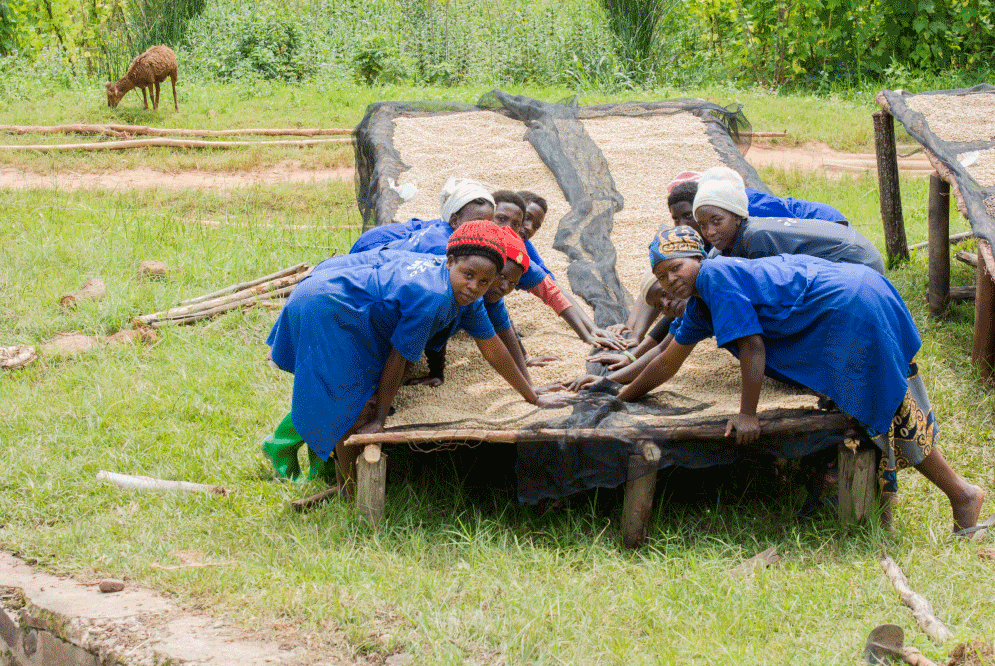It starts with a seed


Baho Coffee
Rwanda
Semilla’s relationship with Baho Coffee operates slightly differently than others, largely due to differences inherent to coffee production in East Africa. For example, rather than working directly with a producer or producer group in a specific part of the country, the relationship is with Emmanuel Rusatira who owns and operates washing stations across Rwanda. That being said, thanks to the incredible efforts of the Baho Coffee team, Semilla know purchases only traceable microlots that are produced by single smallholders or smallholder groups, defined by identity or geographical location.
Rwanda Coffee in the 20th Century
Coffee was introduced to Rwanda in the early 20th century by German colonists, and the industry was then subsequently expanded greatly while the country was under Belgian rule. At this time, coffee was grown only with a focus on volume without any concern for quality — likely inspired by the efforts in the past century such as that of the Dutch in Indonesia. After Rwanda gained its independence, the coffee industry persisted under the same model of low quality and high volume though now in the hands of a company called Rwandex that controlled the lion’s share of coffee production and export out of the country. However, a major economic crisis in the 1980s, consistent political turmoil, and the devastating genocide of 1994 left the coffee industry in shambles by the end of the 20th century. As the country began to rebuild following the genocide, focus was placed on sectors that could generate revenue and employment. Coffee was one such sector, but there was much to do.
During the past era of coffee production, coffee was sold “semi-washed” or ordinaire in French. This was akin to what might is still often seen in Indonesia and in some parts of the Americas — coffee cherries were depulped manually or with small machines and the beans were then sold with the mucilage still remaining to middleman who would pay bottom barrel prices to producers. Their role was to dry these coffees and to pass them along, sometimes through an extensive line of intermediaries before large international buyers purchased the finished product for equally low prices.
Working with Emmanuel is a pleasure and an honour, given his experience and his respected status within Rwanda. However, the choice to work with Rwanda coffee is especially important to Semilla due to the many challenges and complications the national coffee sector faces.
Writing a New History
With their hopes set on revitalizing the coffee sector, the Rwandese government, with the support of international NGOs, looked to other coffee producing countries like Colombia for inspiration on how they might change the reputation of their coffee sector. They came away with two conclusions — washed coffee would lead to higher quality, and higher quality would make coffee a valuable commodity to the Rwanda economy. As such, selling semi-washed was banned and efforts were put in place to construct and/or support the construction of washing stations. The effects have been staggering. Prior to the genocide, there were only two washing stations in the whole of Rwanda, today, there are 315! In order to overcome the predatory buying practices that had prevailed during the former model, the National Agricultural Export Board (NAEB) set a national standard for price per kilo of cherry to be paid to farmers at washing stations. Across the board, coffee quality was undoubtedly raised and producers began to make more money, however, troubling patterns continued to persist.
In those days of colonial development of the coffee industry, Rwandese people made little off their labour and watched as the profits sailed away from their shores.
Today, the increased quality has improved the reputation of Rwanda coffee and brought many international buyers, however 50 percent of Rwandese coffee production is still sold as commercial grade for low prices and 70 percent of all production is controlled by major multinationals.
Sadly then, even amongst specialty grade production, a large portion is managed by (typically) European companies meaning much of the profit for these coffees continues to leave the country.

